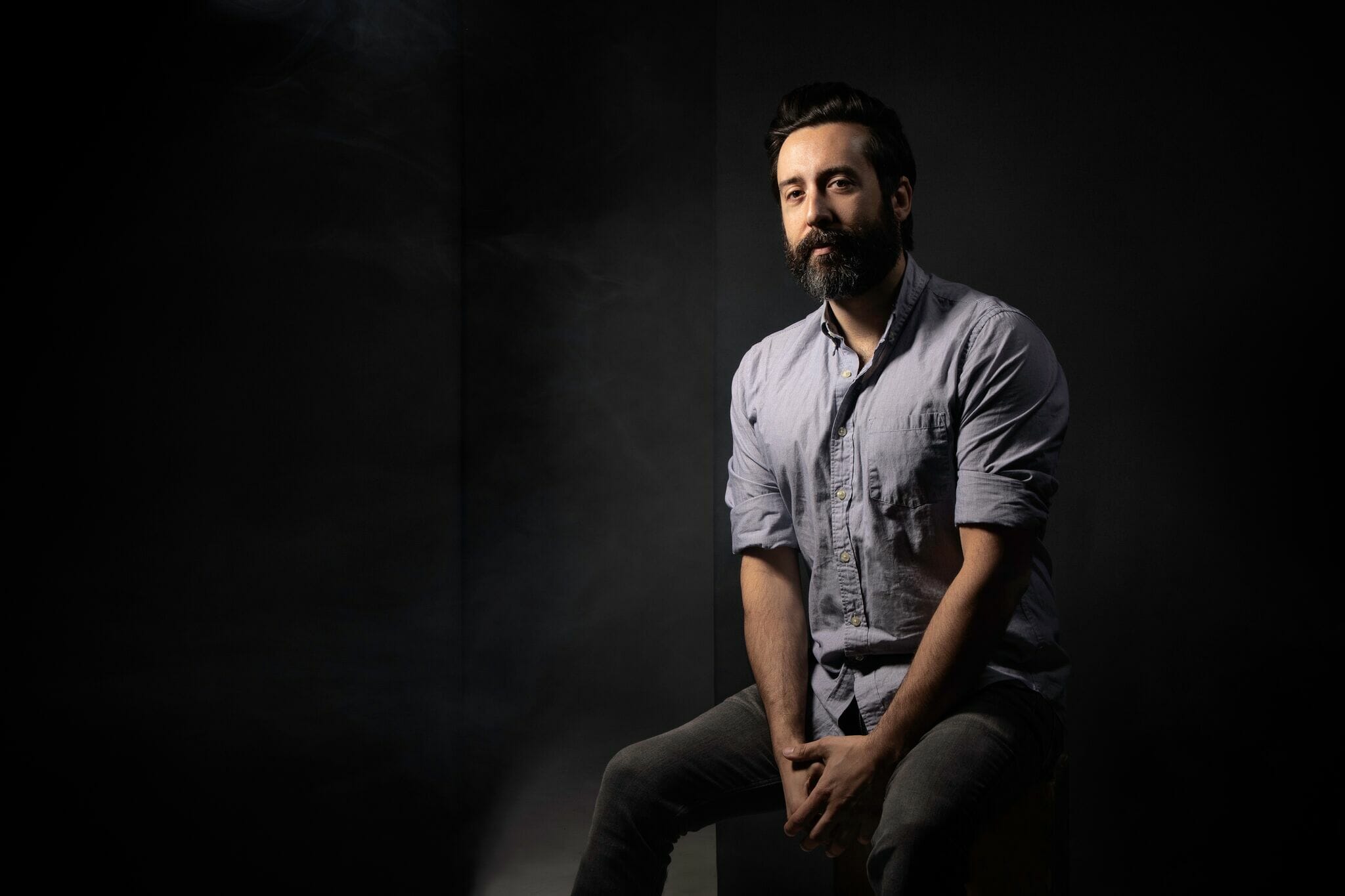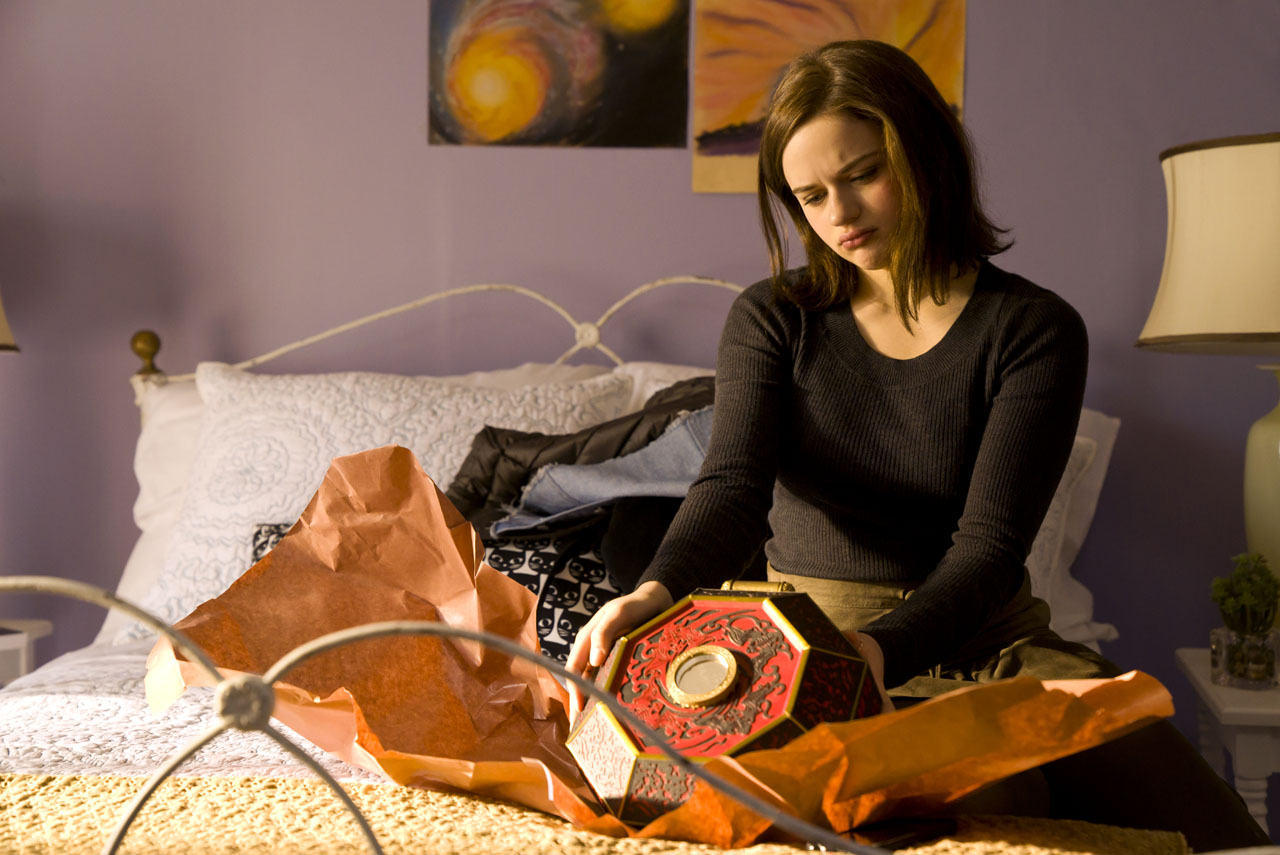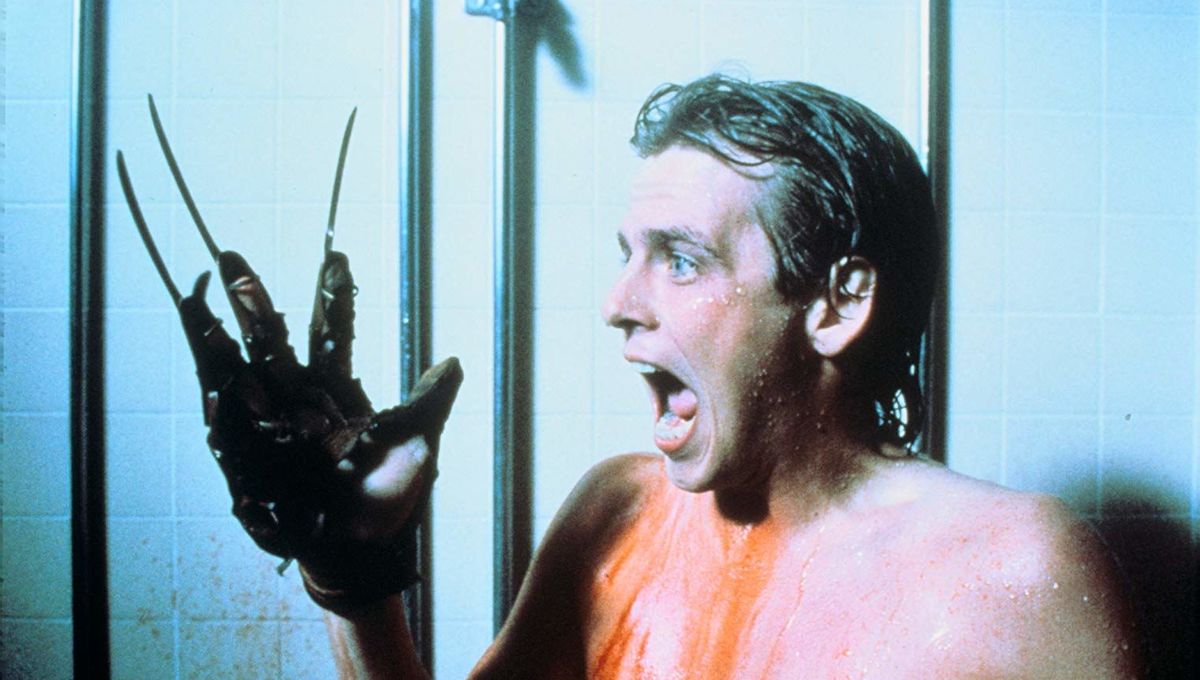When I was younger, I often wondered: “how does one get into the music industry?” I went back and forth between wanting to make music, write about music, or work at a record label. I have tried the first two — I decided to give up on the first one because I was not very good at it, but I’ve never gotten to the third one. I don’t know if that time will come, but I used to think it started out as interning and working your way up. Or maybe you don’t have much experience, but you have a great reputation that makes up for it. However, after writing about music now for over eight years, I’ve come to learn that oftentimes people wind up working in music unintentionally.
A great example of that would be Eric Tobin, who is currently the EVP of Business Development and A&R at Hopeless Records. When chatting with Tobin, one of the first things we discuss is his career path, and how he wound up working with Hopeless. “It’s interesting because I didn’t expect to work at a record label,” he states candidly to Substream. While April 2019 will mark his fourteenth year anniversary, his path to his current position has been a wild one.
When discussing his upbringing, Tobin points to his high school days and how he played trumpet, piano, and sang. While he spent a lot of his young life in and out of hospitals (more on that later), he still gravitated towards high school band. “I met some kids there that were great. They liked punk rock music and I didn’t know anything about it, and I just wanted to be part of something and belong,” he shares on his time in band. As things went on, though, his friends all learned to play guitar and he was left behind with an instrument not necessarily having a place in punk music.
Tobin adapted, and began promoting shows and doing some studio recording. It’s the latter part of his experience where Tobin’s path to Hopeless Records and a lifelong friend begins. While attending a high school battle of the bands, he met a Third Eye Blind cover band which featured Dave Shapiro as their drummer. Tobin offered Shapiro the option to allow him to record some songs of his band, and their connection was immediate from there. Shapiro often introduced Tobin to new music like Drowning Man and The Agency (one of Chris Carrabba’s first bands). He also convinced Tobin to drop everything and start going on tour as a full-time job. His first gig was with Shapiro’s band Count the Stars (signed to Victory Records at the time), and then eventually with Hopesfall for a couple of years. “I didn’t have any place to go really. So I ended up doing tour management, live sound, guitar teching, accounting, merch design, anything that would keep me moving and on the road,” Tobin explains.
Tobin explains his move to California was inspired by his brother’s desire to move out there, as well as Shapiro’s encouragement to join him as well. With an initial game plan of only being in California for six months, it was time to find a job.
“I walked to every store on our block in San Diego putting in applications. Starbucks was the one that got back to me, and I was like, alright, just got off of four years of touring, guess I’m gonna work at Starbucks. I was doing the 4AM-9 shift, picking up extra shifts, I got a job at three different clubs in San Diego doing live sound and thought, I’ll give it my best shot but I’m probably gonna end up leaving in six months,” Tobin shares.
Around the same time, Shapiro received a call from Hopeless founder & president Louis Posen, who had previously offered him a job. Shapiro referred Tobin, who was ultimately hired as the in-house booking agent. Tobin openly admits he wasn’t the best at being a booking agent, but he shares “It was purposefully my job to get the bands agents, and I was better at getting them agents than I was at getting them shows, and that helped because eventually I didn’t have bands to book.”
From there, the rest is history. Tobin moved to Los Angeles with Shapiro and artist manager Mike Kaminsky to become further immersed in his role at Hopeless Records. “From there, I’ve done anything from domestic sales to international business development, international marketing, product marketing, management, sponsorship, merchandise sales. I’ve done a bit of everything here. We went from 5 people when I started, to 31 and now in 7 countries,” Tobin highlights.
Earlier I had mentioned that Tobin spent many of his younger years in and out of hospitals. This was due to his lifelong battle with spina bifida. At its simplest, it is a birth defect in which the spinal cord doesn’t develop correctly. There are three main types: spina bifida occulta, meningocele and myelomeningocele. The most common place for it to appear seems to be the lower back. (Click here for more information on spina bifida.)
“I’m lucky my lesion is lower down on my spine in the L-2 L-5 area, but everybody’s different. Some people are in wheelchairs, some people are in permanent braces, some people use some sort of assistive walking device like walkers or crutches or canes — I currently use a cane to walk,” Tobin shares. He’s very upfront and honest about what he goes through, and while he’s clear that he cannot speak for everyone, he mentions that part of what he deals with is neuropathy below the waist. Basically, he’s unable to feel his feet or legs.
One of the things that Tobin is consciously aware of on a daily basis is his feet. Many of us are able to shop for what looks best and are sometimes able to sacrifice comfort for the appearance. Due to the lesions on his feet from walking, Tobin is unable to share that luxury. Bad bone deformities in his legs and ankles make it difficult to walk, which in turn alters some of the muscle growth as well. “On top of [the feet concerns], it causes other issues that come in the course of your upper and lower intestines, bowel, bladder and kidneys. Obviously more than the physical effect is the social effect or the psycho-social effect, which is what most people go through their life being like, ‘Ah! I go through most of my life with total control of my functions until I drink a lot and then I’m fucked.’ It’s a little more complicated for people with spinal cord or neural tube defects, which is what spina bifida is,” Tobin shares.
Tobin points out that the biggest key is living with spina bifida and the preparation of knowing your own body. This is knowing your limits, your surroundings, and what you need to carry around with you, supply-wise, in case something of an emergency were to strike. While he mentions knowing your limits he admits “I don’t think I should run any marathons.” However, he is planning on a big hiking event, Six Pack of Peaks, which requires him to work closely with his pediatrist on hiking boots and getting inserts to help make this possible.
“I don’t think I need to play the victim card,” Tobin shares, “I don’t think my disability is the leading factor of my life.” It’s an admirable take on life from someone living with a long-term disability. Tobin’s words coincide with the awareness that he mentioned earlier, which as we continue talking, becomes an even bigger picture concern. “There are only 19 adult clinics in the whole country to serve all of these people [with spina bifida]. I largely coordinate all my own care, which means I coordinate all the finances involved.” He explains that his medical expenditures, at any given time, can be $400 to $500 a month for medical debt. Despite any setbacks, he takes a moment to highlight how amazing Hopeless Records has been to him through everything, making sure he has what he needs. Tobin feels lucky to be at a place like Hopeless that sticks by him. And while he hopes for that best case scenario where he’s able to walk everywhere in the world one day, he also has to deal with the likelihood of the alternative as well. “There’s a high possibility I’ll end up in a wheelchair and need better healthcare in my 60s. I can’t just assume that Medicare is going to pay for that. I have to think about how I’m saving not just for a new house or a new car, but for the possible break down of my body at some point.”
Given his upbeat and mostly positive outlook on things, I asked Tobin if there was ever one single moment or time when he came to the conclusion of being okay with his condition. Even at 39, it’s something he explains that he’s still working on. It’s a constant learning experience he says. “There are probably people who have this disability or other neural defects that are incredibly good at staying positive and have people help them.” Tobin then goes on to explain his stubbornness with not wanting too many people to help him. “I get in trouble all the time with friends. I’ll go to the hospital by myself if something happens, treating it as a normal occasion and they’ll say, ‘Why didn’t you call me?’ and I’m like, ‘Well, what are you going to do for me? Change my life? Give me a stem cell treatment?’ They’re response is typically, ‘Don’t be an asshole,’ but I truly am,” he admits.
This mentality is one that might sound sarcastic, but it comes from a real place of not wanting to burden others. “I do know from general inference or context, you want to have the most normal life you can, you don’t want to be a burden to anybody else,” he explains. “I started to feel like, every time something happens to me, something in my life has to change. And I think that starts to hurt other people, and it caused me to think ‘What if I was more on top of this? What greater things could I do?'”
Another side of this disability for Tobin is the fear of letting people down. This led to the desire of wanting to do better and staying focused on personal goals. He wants to do more music festivals and travel to places like Nepal and Morocco. “I’m not gonna sit at home and get into a sort of place where I feel like I can’t do anything. I think it’s fair though to recognize the reality of the situation and knowing that it’s not going to change.”
Continuing our conversation on the daily battle and getting to a point where he feels like he can live with it, Tobin shares “I don’t think it’s necessarily the spina bifida that gets to you. I think it’s the things related to it.” Dealing with this requires extra vigilance at all times. He shares an example of sitting down on a hard chair for too long which could potentially cause cuts or a calluses, while also getting to the headspace of knowing that he needs to take as many precautions as possible. Remembering a time when he broke his leg for the lack of feeling in his feet, Tobin states “Was that my fault? Not really. Did I wanna break my leg? No. Stuff like that happens, and I have to be prepared mentally. In that sense, you just want to be in a space that if something happens, you could say, ‘I did everything I could.”
There’s a point in our conversation where Tobin’s humor and light hearted take on his disability comes through. We discussed how he learned to “have some fun with it” by using examples of entering a waxing contest which he would ultimately win for the lack of the feeling in his legs. He then shared the experience when someone shot him in the leg with a BB gun, which resulted in Tobin just staring back, causing the shooter to get scared and run away. Finding the humor in these scenarios isn’t easy he says. Tobin spoke to teens and parents several months ago as part of the Spina Bifida Association clinic. “A lot of parents are still concerned about other kids making fun of their kids. That’s just gonna happen. That’s just the way people are,” he explained. “The more you can learn to sort of make fun of the situation yourself the better. Be light about it, make a joke about it, bring it up before someone else does. Being in the mix helps.” Additionally, he explains that parents will get bombarded with things like the potential of their kid never working or not thinking correctly due to the spinal cord’s connection to the brain.
Spina bifida is something that you are born with and is found almost immediately. Tobin describes it as being born with a fluid filled sack that is on your back. He shares that there are a few surgeries: one at the moment of birth, and then a couple longer, more severe surgeries in which they are able to give you multiple diagnoses. One of the diagnoses Tobin received was a life expectancy of 35-40 years old. With his 40th birthday coming up this May he jokes “If I make it, which I’m hoping for, I’ll be past my expiration date!”
The diagnoses and surgeries do not stop there. Tobin explains that the real problems start when you hit puberty. “The changes in bone growth, that’s when you’ll start to have issues with your back. My spinal cord for me tethered and I had to have untethering surgery when I was 10. That was a 10 hour surgery. It wasn’t great,” he shares. Further expanding on this notion, he explains that there’s a lot of leg surgeries, preventative bone surgeries, and muscle surgeries that literally take up a 4-5 year chunk out of growing up do to time spent in the hospital, missing school and other life events with friends.
”I just want to be one of the crowd.”
Despite the challenges, Tobin truly feels blessed about where he came from and the family support system he has in place. Aside from attending a few disability camps that he didn’t enjoy, his parents never really treated him differently. His father had him help with the family business as well as chores around the house. He taught him how to walk, ride a bike, and other childhood challenges. Additionally, his brother (who he calls his best friend), always took him out to do things and encouraged him along the way. “It wasn’t some special treatment. Maybe that’s good and maybe that’s bad. I’m not a developmental psychologist. I think all parents try their best, you know. There’s a lot of commentaries and a whole industry of books and editorial work out there. I don’t know what’s right and what’s wrong out there for parents. I think my folks did their best,” he highlights.
We are about fifty minutes into our conversation and it’s hard not to be amazed by having heard Tobin talk about his story. He’s talked with an upbeat and positive attitude during most of the conversation that I had to ask him if he’s thought it’s possible that his condition has strengthened him in some ways. He mentions that oftentimes he hears about how he inspires people, and while that’s flattering, it puts him in a place he didn’t intend to be. “I just want to be one of the crowd. I want to be accepted and I want to be loved like everyone else.” In referring to high school and his early beginnings in music, he explains, “More than anything, I wanted to be part of the group, I wanted to have friends, I wanted to be something.”
Nearing the end of our conversation, I opened the floor for Tobin to ask if there was anything he felt was misunderstood about his disability. He recommended staying away from the basic instinct of pointing out that someone is “weird” for walking funny, despite that it’s an easy thing to fall victim to. “I was watching a Ted Talk this morning, someone was talking about disabilities. I’m not a victim. This is the way it is. I have issues to deal with just like everybody else,” Tobin states. In his opinion, he explains “Asking someone if there is anything they can do to help is always great, so long as you respect that people might not always need that help.”
“I think anybody that knows somebody that’s disabled knows that you just need to be a friend. You don’t need to be extra. You don’t need to be a lot of help, because I don’t want them to feel like a victim to their friend or their acquaintance,” Tobin begins sharing, “They’ll ask for that help if they need it. I’ve been so lucky to have people like Dave, Mike, my brother, people that would come to me and say, ‘Look, you’re going crazy, you need to calm down.’ Things like that. Coworkers, I trusted them as friends. Not in the sense of a disabled person, I trusted them in the sense that they cared about me, they loved me as a human being.”
There are two charities in particular that Tobin shares with me before we get off the phone. The first being an organization called Half Access, which is a program that provides better access for disabled persons at music venues. It was started in spring of 2017, and Hopeless Records provided a grant of $10,000. The first ever of its kind for Hopeless. Tobin highlights this as potentially being the most beneficial to someone with spina bifida. However, he did take a moment to highlight Hopeless Records’ latest program, Songs That Saved My Life, which focuses on mental health and suicide prevention. “Working on mental health and suicide prevention obviously plays deeply into being disabled” explains Tobin. “Our hope with this is to raise money and awareness for resources to help people.”
On a more personal level, Tobin hopes to continue working with and speaking to people who are dealing with spina bifida. “As I work more and more with Spina Bifida Association of America, my goal is to speak with more kids,” he explains. “There’s a wonderful world out there to live in. There’s a world of kids and adults that are looking for a world beyond their perceived presumptions, and I’d love to be a part of that.”
There was a point in our conversation where Tobin mentioned that he didn’t intend to be in a position of inspiring people, but through speaking with him I can share that he is an inspiration all the same. He’s candidly open and honest about his experiences with spina bifida and how much that has affected his life. However, he has found a way to make the best out of it. It’s not an easy conclusion to come to, and it’s even harder to continuously practice that throughout your life. Tobin is only 39 years old, but he’s accomplished a laundry list of things so far and it looks like he’ll continue to expand on that in the future. There’s no guaranteeing what the future holds for him which is something he is consciously aware of. Although, he doesn’t let that stop him. He shared earlier that his disability does not define him, and he’s living by that to the best of his ability. It’s not an easy road by any means, but Tobin has an amazing story. His positivity and outlook on all of it is sometimes the best way to fight it.













